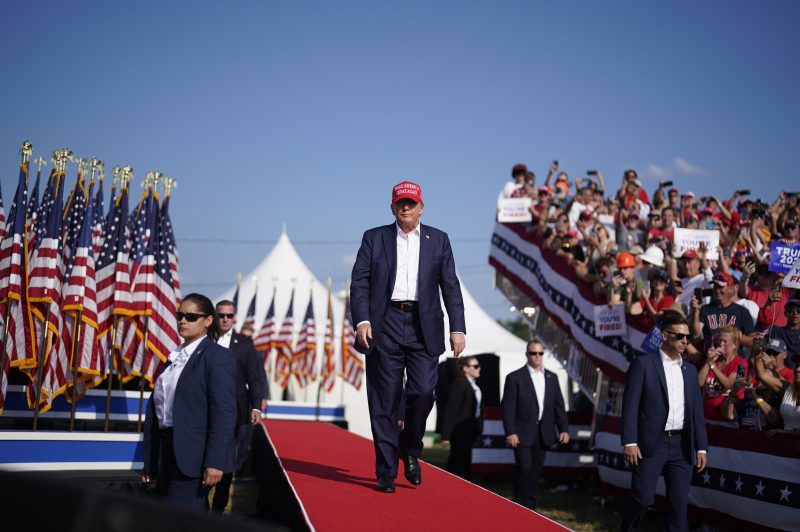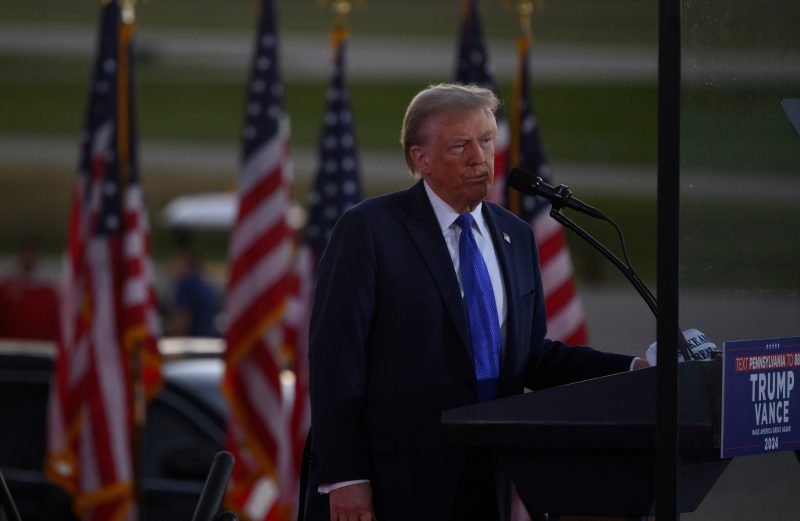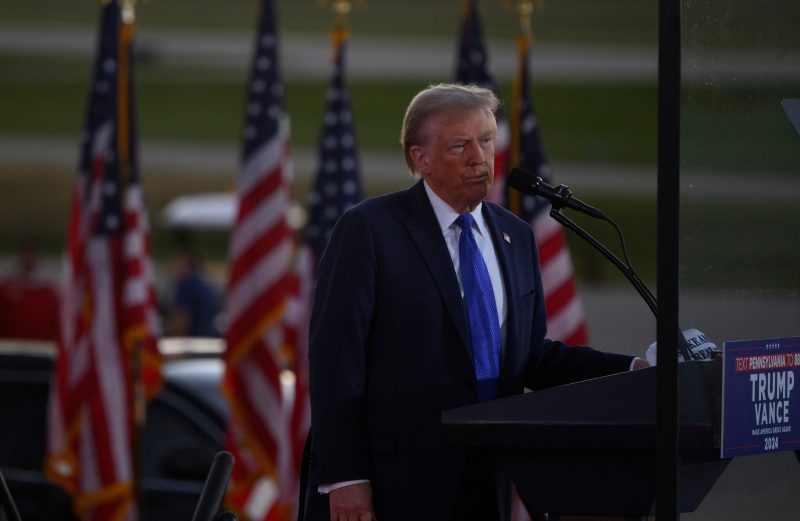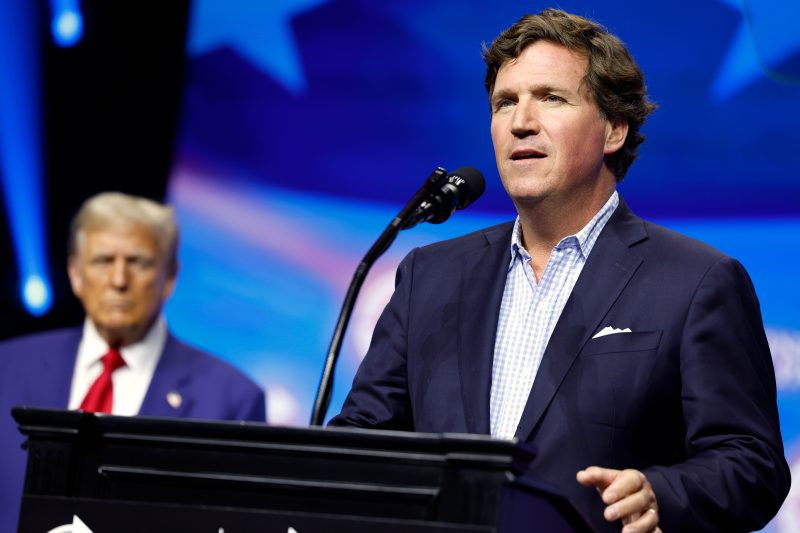
Secret Service encourages Trump campaign to stop outdoor rallies
Secret Service officials encouraged Donald Trump’s campaign to stop scheduling large outdoor rallies and other outdoor events with big crowds after the assassination attempt on the former president in Butler, Pa., according to people familiar with the matter.
In the aftermath of the shooting, agents from the Secret Service communicated their concerns about large outdoor rallies going forward to Trump campaign advisers, three people familiar with the matter said.
The people familiar with the matter spoke on the condition of anonymity to describe private discussions.
For upcoming events, Trump’s team is scouting indoor venues, such as basketball arenas and other large spaces where thousands of people can fit, people familiar with the request said. The campaign is not currently planning any large outdoor events, a person close to Trump said.
A Trump campaign spokeswoman declined to comment. A spokesman for the Secret Service said the agency does not comment on its protective methods.
Trump has held hundreds of outdoor rallies since launching his first presidential bid, often bragging about — and sometimes falsely inflating — his large crowds. They have become something of a cult favorite among his most passionate fans, with tailgate parties in parking lots, vendors lining open areas near the rally and large parades of traffic, often with gargantuan pickup trucks.
They usually include large rosters of speakers before Trump takes the stage, with crowds sometimes enduring the heat or the cold for many hours. The crowd sometimes departs before Trump, who is regularly late, finishes speaking.
The rallies are often held at airports but are also held at fairgrounds, football stadiums or other large outdoor venues.
Sarah Matthews, a former Trump spokeswoman turned critic, said Trump would often get upset if people were not moved past the magnetometers quickly enough and the outdoor venues were not filling up quickly enough.
“We’ve seen from the early days of his presidency even, and before that during his first campaign in 2016, how important crowd size is to him. It gives him a lot of joy and energy being with large crowds. He feeds off their energy. It’s almost like a source of comfort for him,” said Matthews, who served as a deputy press secretary in the Trump White House.
Indoor rallies are more expensive, campaign advisers said. But one campaign official who spoke on the condition of anonymity to describe private plans said the indoor events are inherently safer because it is easier to control who comes through a finite number of doors, and there are fewer line-of-sight issues.
“Obviously with an indoor venue, you have a capacity,” she said. “It doesn’t pack the same punch. There’s something about being at one of those outdoor rallies.”
The rallies have long been viewed as onerous by the Secret Service because they include complicated outdoor venues with thousands — if not tens of thousands — of people. Most other former presidents rarely appear in public, and when they do, they usually appear in settings such as conferences and restaurants with fewer people. Trump requires a much larger security footprint than other past presidents because he holds so many large events.
Agents usually arrive well in advance, putting together a security plan for the large outdoor venues.
U.S. Secret Service Director Kimberly Cheatle resigned Tuesday in the aftermath of the assassination attempt, telling staff that she took “full responsibility,” according to a copy of a letter sent to agency staff and obtained by The Washington Post.
In early 2024, Trump advisers told the Secret Service they were planning to do large events regularly, and would need increasing amounts of protection and assets, a person familiar with the conversation said. But the two sides often battled over resources — with requests from Trump’s detail being rejected by the Secret Service.



